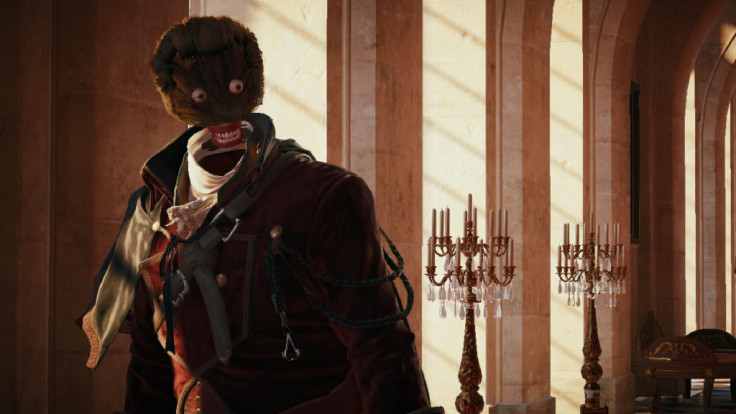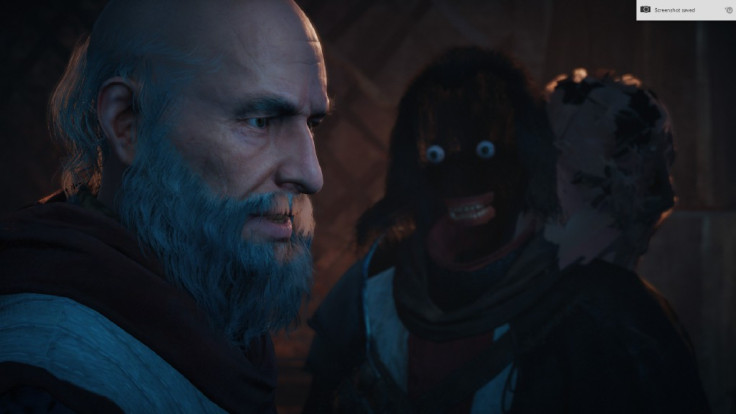Assassin's Creed Unity, Unfinished Games and Over-Reliance on Post-Release Patches

Young people reading this might find the following notion strange and archaic, but video games were once released in complete, finished states.
In recent weeks a spate of high profile releases have suffered upon hitting the shelves. DriveClub had ongoing server problems, Halo: The Master Chief Collection's matchmaking was a mess, and Assassin's Creed Unity... oh boy.
Unity is gaming giant Ubisoft's biggest release of 2014, and it's currently teeming bugs: frame-rate issues, clipping, pop-in problems, co-op server issues, and hilariously, glitches like this...

Unity is in such a terrible state Ubisoft have started a live blog to keep fans updated on their efforts to fix things. The general opinion is that most of the problems will be sorted in the coming weeks with patches, but that's no excuse.
To their credit the gaming community is taking the issues in stride and enjoying the problems for how ridiculous they are, but when issues are as widespread as they are in Unity it's time to ask exactly what the hell is happening in the video game industry?
It is clear as day that Unity should not have been released when it was, as it is, and the reason why is obvious...

Over the past few months a number of high profile games have been delayed until next year, such as Batman: Arkham Knight, Battlefield Hardline, Bloodborne, and Evolve. Typically these decisions are met with frustration, but also an understanding that the only possible result is a better game.
If Assassin's Creed Unity had joined them it's safe to say these problems would have been ironed out for the most part, but then Ubisoft would have been left without their biggest seller. It isn't like they're averse to the idea though, last year they delayed new IP Watch Dogs. So why not Assassin's Creed?
Watch Dogs had the benefit of being new and needing to make a good first impression, while Assassin's Creed Unity is just the next in a factory line of Creed titles being churned out annually from multiple development teams.
If Assassin's Creed gets delayed, the whole operation is thrown out of whack, so why bother making big, financially detrimental decisions like that when you can release an unfinished game, enjoy good sales regardless, then bring the game up to scratch later on?
Consumers know the answer, consumers want to be treated better, but the internet has granted big companies the freedom to continue developing a game after the public has forked over cash for it.
Other games like DriveClub, but also SimCity and Grand Theft Auto: Online, launched with big server issues that in the case of the latter two rendered the game unplayable. To state the obvious: this kind of thing should be tested and servers should be able to handle the obvious demand some games will have.
There's almost an acceptance that these difficulties will occur but that gamers will readily just sit there and accept it. There is outcry for sure, but it will never impact how developers and publishers operate until gamers get fed up and it starts affecting the bottom line.
With every big game that's released heaving with bugs the industry slips further into accepting the Early Access Beta model as its main method of release. "Here take this, test it for us and we'll fix it... promise?" This cannot be accepted as the norm.
The bare minimum consumers should expect from a game is that it can be played perfectly well straight out the box. Yet here we are, feeling the need to say it just in case it wasn't obvious enough.
IBT reviewer's opinion - James Etherington-Smith
I am in the process of reviewing Unity for IBTimes UK, and as a fan of the series I was looking forward to getting stuck into what Ubisoft has been known to do best - produce an entertaining Assassin romp.
Upon firing up the game pre-launch, I was greeted with a patch to download: not a good sign. Being impatient I soldiered on without the patch, playing the version that will be hitting shelves.
My initial thoughts quickly went from 'These graphics are great' to 'Wow this game is buggy'. I've experienced the gamut of issues, from frame rate drops to clumsy traversal and combat glitches - all this before the game has even become interesting at around three hours in.
So I have now installed the first of what will likely be many patches, and over the coming days hope to see an evolution from the £45 public-test version to what should have been the final product.
Keep an eye on IBTimes UK for our upcoming Assassin's Creed Unity review.
© Copyright IBTimes 2025. All rights reserved.






















